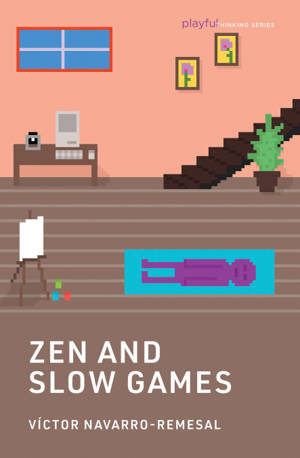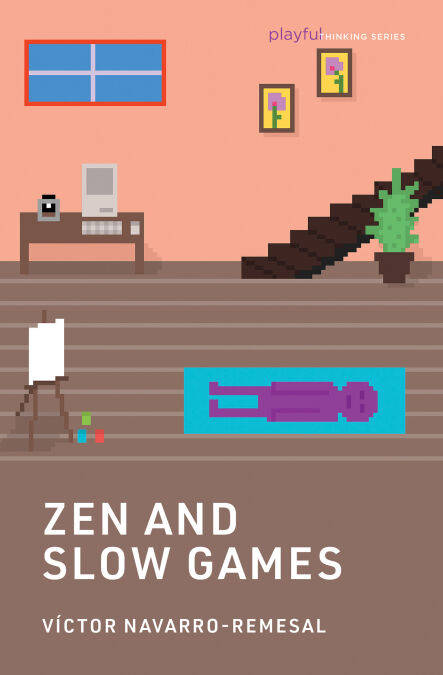
Bedankt voor het vertrouwen het afgelopen jaar! Om jou te bedanken bieden we GRATIS verzending (in België) aan op alles gedurende de hele maand januari.
- Afhalen na 1 uur in een winkel met voorraad
- In januari gratis thuislevering in België
- Ruim aanbod met 7 miljoen producten
Bedankt voor het vertrouwen het afgelopen jaar! Om jou te bedanken bieden we GRATIS verzending (in België) aan op alles gedurende de hele maand januari.
- Afhalen na 1 uur in een winkel met voorraad
- In januari gratis thuislevering in België
- Ruim aanbod met 7 miljoen producten
Zoeken
€ 39,42
+ 39 punten
Omschrijving
A deep dive into the reflective modes of playfulness in video games.
Slowness and reflectiveness have always been part of the video game medium, though they have been used very differently throughout its history. In Zen and Slow Games, Víctor Navarro-Remesal challenges the dominant discourse of action and quick reflexes in video games to offer an analysis of reflectiveness as a style in games, tracing its evolution from its origins to the present time. Two labels are of particular importance: the Zen modes (and later, Zen games) of the 2000s, especially during the Casual Revolution, and the slow games or slow gaming movement, which started in the 2010s and is ongoing today. The term “reflective games” is offered as an umbrella to bring together these and other labels to raise awareness and discussion of slow gaming.
Slowness and reflectiveness have always been part of the video game medium, though they have been used very differently throughout its history. In Zen and Slow Games, Víctor Navarro-Remesal challenges the dominant discourse of action and quick reflexes in video games to offer an analysis of reflectiveness as a style in games, tracing its evolution from its origins to the present time. Two labels are of particular importance: the Zen modes (and later, Zen games) of the 2000s, especially during the Casual Revolution, and the slow games or slow gaming movement, which started in the 2010s and is ongoing today. The term “reflective games” is offered as an umbrella to bring together these and other labels to raise awareness and discussion of slow gaming.
Specificaties
Betrokkenen
- Auteur(s):
- Uitgeverij:
Inhoud
- Aantal bladzijden:
- 224
- Taal:
- Engels
- Reeks:
Eigenschappen
- Productcode (EAN):
- 9780262385022
- Verschijningsdatum:
- 9/02/2026
- Uitvoering:
- E-book
- Beveiligd met:
- Adobe DRM
- Formaat:
- ePub

Alleen bij Standaard Boekhandel
+ 39 punten op je klantenkaart van Standaard Boekhandel
Beoordelingen
We publiceren alleen reviews die voldoen aan de voorwaarden voor reviews. Bekijk onze voorwaarden voor reviews.









